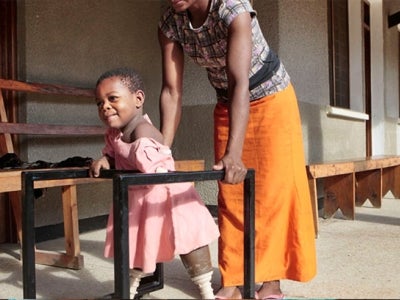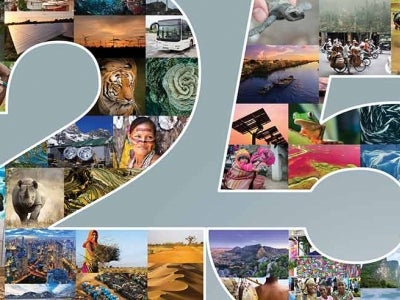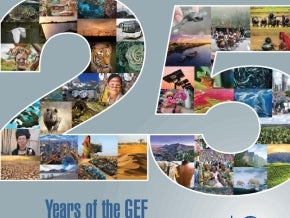
Fiji
Fiji’s ecosystem services are provided by the country's diverse natural resources, ranging from terrestrial to coastal and marine ecosystems. Like many Pacific island countries, Fiji represents a microcosm of some of the most significant development and environmental challenges facing the world. It comprises more than 332 islands, about one-third of which are inhabited, with a total land area of 18,333 km2 in a vast 1.6 M km2 marine Exclusive Economic Zone (EEZ) .
Much of Fiji’s economy depends on exploiting its natural resource base, especially pelagic fisheries in its EEZ. Its limited land area experiences intense competing pressures on resources from agriculture, tourism, transport, water and other needs. With some of the highest rainfall on the planet (typically more than 2000mm a year) it has abundant natural water resources: indeed bottled mineral water has become a top export earner.
Fiji's environment has been in a bad state - particularly so for domestic water due to wastewater releases, poorly sited toilets and/or overuse of fertilizer in upstream communities and farms that pollute our coastal waters, create outbreaks of disease, and contaminate sensitive groundwater supplies. The Global Environment Facility has compounded its financial support to the government through the Ridge to Reef Project in the GEF 5 STAR allocation to address some of these concerns. The project’s objective is to preserve biodiversity and ecosystem services, sequester carbon, improve climate resilience and sustain livelihoods through ridge-to-reef management of priority water catchments on the cointry's two main islands.
The four year (2016-2019) project has a GEF budget of USD 7.39 million and substantial co-financing from the Fiji Government, the private sector, the United Nations Development Programme (UNDP) and conservation NGOs (USD 30.24 million). The allocation includes USD 4.94 million for biodiversity, USD 2 million for climate change and USD 0.65 million for land degradation, all brought under one umbrella project to be implemented by UNDP. The project is part of the Program on “Pacific Islands Ridge-to-Reef National Priorities – Integrated Water, Land, Forest and Coastal Management to Preserve Biodiversity, Ecosystem Services, Store Carbon, Improve Climate Resilience and Sustain Livelihoods”. Its approach in priority catchments will be to address key environmental issues in an integrated manner and bolster Fiji’s national system of marine protected areas through an enhanced, representative and sustainable system of Locally Managed Marine Areas, including greater protection of threatened marine species.
Since it was established in 1991, the GEF has provided a total of US$14,604,507 to Fiji for projects relating to biodiversity conservation, land degradation, climate change and persistent organic pollutants mostly implemented by UNDP with the Department of Environment as the executing agency.
Currently the GEF Operational Focal Point Portfolio for Fiji has six National Projects being implemented by UNDP in close conjunction with the Ministry of Local Government, Housing and Environment.
It is envisaged that, by end of 2016, an additional USD 3.39 million will be given as grant to the Ministry to address the growing issue of invasive species in the country through the Biosecurity Authority of Fiji.
Communities in Fiji have also benefited from the GEF Small Grants Programme (SGP). In May 2016, for example, the Navuso Agriculture Training Institute (NATI) held its first Farmer Soils School for a total of 150 participants, including 25 female trainees. Young and old trainee farmers participated in 2 weeks of hands-on training in biological methods of soil health, fertility management and field practicals. The trainees implemented their newly found skills both at demonstration farms at NATI and back in their villages, and returned for an Advanced Farmers Soil School in September 2016. Mike Smith of the Organic Matters Foundation (OMF), who facilitated the training, said he was “overwhelmed by the enthusiasm of Fijian young farmers keen for more than NPK (fertiliser) and the so called green revolution”. School Principal, Reverend Malakai Tuikadavu said “The school is blessed by the funding provided by the GEF SGP, and the future of the school’s curricula looked very promising after the experience gained through the Soil Schools and the expertise shared by partner OMF and the SGP Fiji.”
SGP Fiji also contributed to the GEF strategy for chemicals, which sets out to promote their sound management throughout their life-cycle in ways that lead to minimizing significant adverse effects on human health and the global environment.


